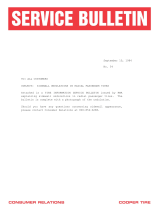
wc_si000772gb.fm
8
Safety Information HIF 690
1.2 Machine Description and Intended Use
Machine
description
The HIF series heaters are flameless air heaters. The machine consists of the
following components:
Recirculated air or outside air (depending on the application) is pulled in by the
engine fan through the exhaust heat exchanger and engine radiator. The clean,
dry, warm air is heated further by pulling it through the engine compartment and
past the heat plate. Finally, the warmed air is heated to its maximum temperature
by pulling it through the primary exhaust exchanger and heat plate radiator. The
heated air is then pushed out of the machine by the engine fan.
Intended use
The HIF series heaters are intended to provide heat on outdoor sites and in other
rugged applications. Do not use these machines indoors.
This machine has been designed and built strictly for the intended use described
above. Using the machine for any other purpose could permanently damage the
machine or seriously injure the operator or other persons on the work site. Machine
damage caused by misuse is not covered under warranty.
Operating the machine in a manner that is inconsistent with all federal, state,
and local codes and regulations
Using the machine as a ladder, support, or work surface
Using the machine to carry or transport passengers or equipment
Using the machine to tow other machines (unless factory equipped)
Operating the machine with fluids/oils other than the recommended classified
fluids/oils found in the operator’s manual.
Operating the machine outside of factory specifications
Operating the machine in a manner inconsistent with the warnings found on the
machine and in the Operator’s Manual
This machine has been designed and built in accordance with the latest global
safety standards. It has been carefully engineered to eliminate hazards as far as
practicable, and to increase operator safety through protective guards and labeling.
However, some risks may remain even after protective measures have been taken.
They are called residual risks. On this machine, they may include exposure to:
exhaust emissions
hot surfaces such as exhaust vents
fuel and fuel fumes when refueling
Air recirculation inlet Trailer
Automatic louvers Diesel engine
Emergency stop High-temperature shut-down switch
Exhaust heat exchanger
Interchangeable 12'', 16”, and 20'' duct adapters
Engine radiator Positive air shut off (automatic)
Hydraulic heat plate SAE-1171 sealed alternator
Heat plate radiator Single point lift bail
Fuel tank























